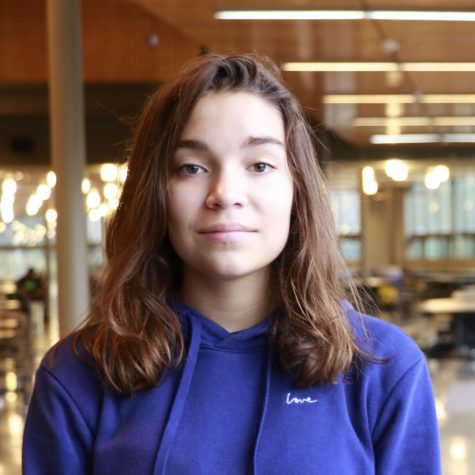Will the Global Pandemic Find a Cure?
May 27, 2020
The world is watching the progress made by a few selected companies in the race for a coronavirus vaccine. The United States in particular has been vying for rights to the vaccine, pledging hundreds of millions of dollars towards research, mostly to the French pharmaceutical giant, Sanofi. U.S. officials, accompanied by the president, held a round table meeting to discuss timeframes and current progress. “Trump seemed to tune out everything but the talk of time,” CNN reporter Robert Kuznia said in his article depicting the meeting. The president seemed uninterested in the first two proposals from John Shiver, the head of R&D for Sanfoni, and Lenny Schleifer, the founder and CEO of Regeneron. Both “took too long,” and when the third CEO, Stéphane Bancel of Moderna Inc., presented his idea, Trump seemed to perk up. “So that process would be faster than John’s?” He asked, waving a hand towards the previous CEO’s pitches. Moderna Inc.’s vaccine is set to work in a timeframe of about a month and a half, and Stéphane said he was “very proud to be working with the US government and to have already sent, in only 42 days from the sequence of the virus, our vaccine to Dr. Fauci’s team at the NIH.”
Moderna Inc. has produced positive results concerning their vaccine, with the Wall Street Journal headline reading; “Experimental coronavirus vaccine induced immune responses in volunteers, raising hopes that a weapon to slow the pandemic could be on the horizon.” Moderna has been successful so far in clinical trials, and is well on its way to being sent to the National Institute of Allergy and Infectious Diseases for final tests and alterations. Fauci seemed nervous about the lack of rigorous testing for the Moderna vaccine while it was at their facilities in France, but was silenced by Stéphane trying to further vie for his plans. “With phase two,” Bancel clarified, just before Fauci interjected, for Trump’s benefit, “You won’t have a vaccine. You’ll have a vaccine to go into testing.” This meant there will not be a final product sent to the NIH, just a tentative solution for the US to alter as they need to.
The vaccine has been chased after by universities, companies, and the pharmaceutical industry itself, each fighting to be the first successful producer. Oxford University has partnered with China-based researchers and pharmaceutical companies to develop a vaccine that should be ready to dispense to the public by mid-June. The University partnered with the UK-based pharmaceutical company, AstraZeneca, and head researchers from China in order to speed up the process and maintain accuracy in their clinical trials. The U.S. has pledged and donated nearly 30 million dollars to AstraZeneca. The company has also been pursuing their own studies along with partnering with Oxford, and say that their product could hit the world market in autumn if tests continue to go well. They have been testing the product on rhesus monkeys and have reported no severe side effects.
Although there are over ninety vaccines being produced, all at varying stages of development, only six are currently undergoing clinical trials. Hundreds of volunteers are put to use in these trials, and carefully monitored. “This typically involves giving thousands or tens of thousands of people a vaccine or placebo and seeing, over months or even years, whether there is a difference between the two groups in how many people get infected in the course of their daily lives, as well as checking that no safety issues emerge,” nature.com reports, but now the scientists need to accelerate that process and cut it into a few months. “It’s going to require a level of coordination that has never really happened before, and a time frame that’s never really been even imagined,” says Mark Feinberg, president and chief executive of the International AIDS Vaccine Initiative (IAVI) in New York City. “You can’t take 200 vaccines into efficacy trials,” says Seth Berkley, chief executive of Gavi, a non-profit organization for immunization. The U.S. National Institutes of Health (NIH) in Bethesda, Maryland, unveiled a partnership with more than a dozen companies that aims to coordinate the development of drugs and vaccines for coronavirus this month. Additionally, the Coalition of Epidemic Preparedness (CEPI), a global foundation that funds vaccine development, is supporting nine different vaccines. “The non-profit hopes to raise U.S. $2 billion to pay for trials, manufacturing and other costs,” says Melanie Saville, the organization’s director of vaccine research and development.
As governments and companies collaborate to save the world, the rest of us can help. Follow quarantine directives and wear masks when necessary. Stay away from other people, and do not leave the house unless it is for an essential activity. The coronavirus will not go away by itself; we all need to work together to slowly eradicate it. As the race for a vaccine continues, the best we can do is take care of ourselves and our families.


